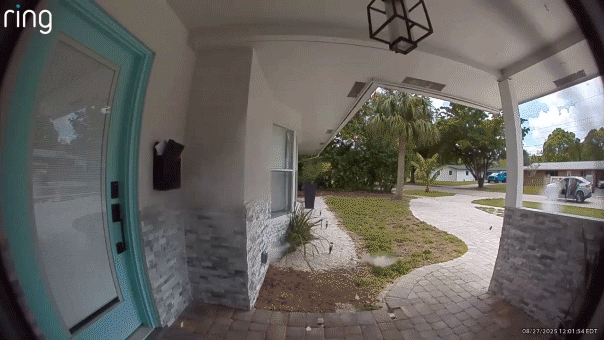NEWYou can now listen to Fox News articles!
Hyundai AutoEver America discovered on March 1, 2025, that hackers had compromised its systems. Investigators found the intrusion began on February 22 and continued until March 2.
Hyundai AutoEver America (HAEA) provides IT services for Hyundai Motor America, including systems that support employee operations and certain connected-vehicle technologies. While the company works across Hyundai’s broader ecosystem, this incident did not involve customer or driver data.
According to the statement provided to CyberGuy, the breach was limited to employment-related information tied to Hyundai AutoEver America and Hyundai Motor America. The company confirmed that about 2,000 current and former employees were notified of the incident in late October. HAEA said it immediately alerted law enforcement and hired outside cybersecurity experts to assess the damage.
Sign up for my FREE CyberGuy Report
Get my best tech tips, urgent security alerts and exclusive deals delivered straight to your inbox. Plus, you’ll get instant access to my Ultimate Scam Survival Guide — free when you join my CYBERGUY.COM newsletter.

Cybercriminals targeted Hyundai AutoEver America’s systems, exposing sensitive data. (Kurt “CyberGuy” Knutsson)
Why this Hyundai AutoEver America breach matters
The exposed data reportedly includes names, Social Security numbers and driver’s license numbers, making this breach far more serious than one involving passwords alone. Experts warn that these details can be used for long-term identity theft and financial fraud. Because Social Security numbers cannot easily be changed, criminals have more time to create fake identities, open fraudulent accounts and launch targeted phishing attacks long after the initial breach.

Experts warn that stolen Social Security and driver’s license information could be used for identity theft and fraud. (Kurt “CyberGuy” Knutsson)
Who was affected in the Hyundai AutoEver America data incident
AEA manages select IT systems tied to Hyundai Motor America’s employee operations, along with broader technology functions for Hyundai and Genesis across North America. Its role includes supporting connected-vehicle infrastructure and dealership systems.
According to the company, this incident was limited to employment-related data and primarily affected approximately 2,000 current and former employees of Hyundai AutoEver America and Hyundai Motor America. No customer information or Bluelink driver details were exposed. While some filings reference sensitive data types such as Social Security numbers or driver’s license information, the incident did not involve Hyundai customers or the millions of connected vehicles HAEA supports.
Earlier reports suggested that 2.7 million individuals were affected, but Hyundai says that figure is unrelated to the breach. Instead, 2.7 million is the estimated number of connected vehicles that Hyundai AutoEver America helps support across North America. None of that consumer or vehicle data was accessed.
GENESIS PREVIEWS G70 SPORTS SEDAN WITH NEW YORK CONCEPT
Hyundai also clarified that the United States has about 850 Hyundai dealerships and emphasized that the scope of this incident was narrow and contained.
We reached out to HAEA for a comment, and a representative for the company provided CyberGuy with this statement:
“Hyundai AutoEver America, an IT vendor that manages certain Hyundai Motor America employee data systems, experienced an incident to that area of business that impacted employment-related data and primarily affected current and former employees of Hyundai AutoEver America and Hyundai Motor America. Approximately 2,000 primarily current and former employees were notified of the incident. The 2.7 million figure that is cited in many media articles has no relation to the actual security incident. The 2.7 million figure represents the alleged total number of connected vehicles that may be supported by Hyundai AutoEver America across North America. No Hyundai consumer data was exposed, and no Hyundai Motor America customer information or Bluelink driver data was compromised.”

Scammers may now pose as company representatives, contacting people to steal more personal details. (Kurt “CyberGuy” Knutsson)
What you should do right now
- Monitor your bank, credit card and vehicle-related accounts for suspicious activity.
- Check for a notification letter from Hyundai AutoEver America or your car brand.
- Enroll in the two years of complimentary credit monitoring offered by HAEA if you qualify.
- Enable multi-factor authentication (MFA) on all important accounts, including those tied to your vehicle.
- Be cautious of emails, texts or calls claiming to be from Hyundai, Kia or Genesis. Always verify through official websites.
Smart ways to stay safe after the Hyundai AutoEver America breach
Whether you were directly affected or just want to stay alert, this breach is a reminder of how important it is to protect your personal information. Follow these practical steps to keep your data secure and reduce the risk of identity theft or scams.
HYUNDAI TO RECALL GENESIS CARS TO FIX BRAKES
1) Freeze or alert your credit
Contact major credit bureaus — Experian, TransUnion and Equifax — to set a fraud alert or freeze. This helps block new accounts from being opened in your name.
2) Protect your vehicle apps
If you use apps tied to your vehicle, update passwords and enable multi-factor authentication. Avoid saving login details in unsecured places. Also, consider using a password manager, which securely stores and generates complex passwords, reducing the risk of password reuse.
Next, see if your email has been exposed in past breaches. Our #1 password manager (see Cyberguy.com) pick includes a built-in breach scanner that checks whether your email address or passwords have appeared in known leaks. If you discover a match, immediately change any reused passwords and secure those accounts with new, unique credentials.
Check out the best expert-reviewed password managers of 2025 at Cyberguy.com
3) Watch for fake support messages
Scammers may use news of the Hyundai AutoEver America breach as a way to contact Hyundai, Kia or Genesis owners, pretending to be from customer support or the dealership. They might claim to help verify your account, update your information or fix a security issue. Do not share personal details or click any links. Type the brand’s web address directly into your browser instead of clicking links in messages or emails. Always confirm through the official brand website or by calling the verified customer service number.
4) Use strong antivirus protection
Using strong antivirus software helps block phishing links, malware downloads and fake websites that might appear after a data breach. It can also scan your devices for hidden threats that may try to steal login data or personal files.
The best way to safeguard yourself from malicious links that install malware, potentially accessing your private information, is to have strong antivirus software installed on all your devices. This protection can also alert you to phishing emails and ransomware scams, keeping your personal information and digital assets safe.
Get my picks for the best 2025 antivirus protection winners for your Windows, Mac, Android and iOS devices at Cyberguy.com.
5) Use a data removal service
Data removal tools automatically find and delete your personal information from people-search and data-broker sites. These services reduce the chances that criminals will use leaked data to target you with phishing or social-engineering scams.
While no service can guarantee the complete removal of your data from the internet, a data removal service is really a smart choice. They aren’t cheap, and neither is your privacy. These services do all the work for you by actively monitoring and systematically erasing your personal information from hundreds of websites. It’s what gives me peace of mind and has proven to be the most effective way to erase your personal data from the internet. By limiting the information available, you reduce the risk of scammers cross-referencing data from breaches with information they might find on the dark web, making it harder for them to target you.
Check out my top picks for data removal services and get a free scan to find out if your personal information is already out on the web by visiting Cyberguy.com.
Get a free scan to find out if your personal information is already out on the web: Cyberguy.com.
6) Monitor your digital footprint
Consider using identity monitoring services to track your personal information and detect possible misuse early.
Identity Theft companies can monitor personal information like your Social Security number (SSN), phone number and email address, and alert you if it is being sold on the dark web or being used to open an account. They can also assist you in freezing your bank and credit card accounts to prevent further unauthorized use by criminals.
See my tips and best picks on how to protect yourself from identity theft at Cyberguy.com.
7) Keep your devices updated
Regularly install security updates on your phone, laptop and smart car systems to reduce the risk of further attacks.
8) Report suspicious activity the right way
If you notice unusual account activity, fraudulent charges, or suspicious messages that appear tied to this breach, report it immediately. Start by contacting your bank or credit card provider to freeze or dispute any unauthorized transactions. Then, file a report with the Federal Trade Commission (FTC) at IdentityTheft.gov, where you can create an official recovery plan. If you suspect a scam message or call, forward phishing emails to [email protected] and report fake texts to 7726 (SPAM).
CLICK HERE TO DOWNLOAD THE FOX NEWS APP
Kurt’s key takeaways
This incident highlights how much personal data is connected to modern cars and how vulnerable those systems can be. When your vehicle is linked to your identity, protecting your data becomes just as important as maintaining the car itself. Stay alert, use the tools available to safeguard your accounts and report any suspicious activity right away.
Should companies like Hyundai AutoEver be doing more to keep customer data secure? Let us know by writing to us at Cyberguy.com.
Sign up for my FREE CyberGuy Report
Get my best tech tips, urgent security alerts and exclusive deals delivered straight to your inbox. Plus, you’ll get instant access to my Ultimate Scam Survival Guide — free when you join my CYBERGUY.COM newsletter.
Copyright 2025 CyberGuy.com. All rights reserved.








